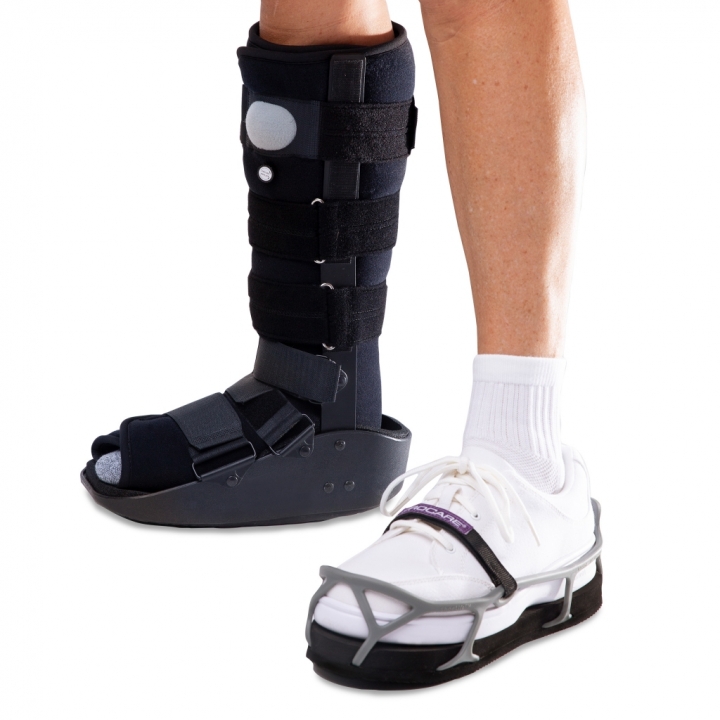
Introduction
Even the most-advanced walking boot, engineered to provide the ultimate in protection, comfort and oedema control on the injured limb needs consideration of the effects that might be caused by limb length descrepancy. Your patient should have their limb lengths measured from ASIS to medial malleolus before considering correction as they might already be short on the injured limb.
The Procare® ShoeLift™ Balancer
The answer to hip and knee pain caused by uneven gait dues to walking with an orthotic walking boot or wound care shoe or uneven leg lengths caused as a result of hip replacement surgery.
The Procare® ShoeLift™ provides a 1/2" to 1" lift to help offset the additional height brought about by wearing an orthotic walking boot or plaster cast and plaster boot.
Please note that our sizes have changed! Use the measurement technique below to determine your appropriate size even if you have ordered in the past.
The measurement of the sole of the shoe is used to determine the appropriate size of Procare® ShoeLift™. See below for the proper measurement technique.
Indications
• Leg length descrepancy while in a walker or plaster cast
Information on Ordering
Choose the size of the Procare® ShoeLift™ your patient needs. The sizes are UK shoe size.
Corresponding Sizes:
Part Number /Size / UK Men / UK Women
79-95603 / S / 6.5-8 / 4-7
79-95605 / M / 8.5-11 / 7.5-9.5
79-95607 / L / >11.5 / >10
Innovations
• Easily removable
• Adjustable to two thicknesses
• Available in three sizes
• Fits left or right foot
Complications of Leg Length Descrepancy (LLD)
OrthopaedicsandTrauma.com asked John Hardy, Consultant Orthopaedic Surgeon about the management of leg length descrepancy.
Mr Hardy said: The latest evidence base confirms what we have seen for many years. That leg length descrepancy of more than 20 mm causes secondary pathology in the spine, hip and knee. Based on these findings, the Procare® ShoeLift™ may be useful in the treatment of the symptoms of LLD.
The evidence for this comes from a recent paper review Gordon JE & Davis LE. Leg Length Descrepancy: The Natural History (And What Do We Really Know). J Paediatric Orthopaedics. 2019. Jul;39(6):S10-S13.